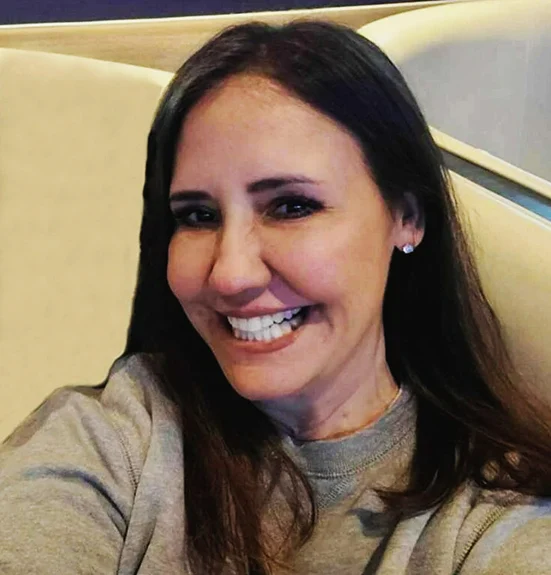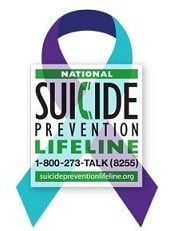What Are Boundaries?
Boundaries are our sense of ourselves, and our perception of how we are different from others physically, intellectually, emotionally and spiritually. Boundaries exist for our protection. Our boundaries are not fixed. They change with what we feel and the people we are with.
When our boundaries are intact, we know that we have separate feelings, thoughts and realities. Our boundaries allow us to know who we are in relation to others around us. We need our boundaries to get close to others, since otherwise we would be overwhelmed.
Boundaries ensure that our behavior is appropriate and keep us from offending others. When we have healthy boundaries, we also know when we are being abused. A person without boundaries will not know when someone is physically, emotionally, or intellectually violating them.
Types of Boundaries
1) Physical 2) Emotional 3) Intellectual 4) Spiritual
Physical Boundaries
Healthy boundaries determine how close others should come to us, also be able to determine how and when we want to be touched, and who we will allow to touch us.
Physical boundaries are most often violated by physical violence, incest, or neglect. Our bodies and emotions tell us when someone is violating our space; however, children with dysfunctional parents learn to distrust their senses and emotions. They often ignore bizarre events and treat a crisis as if it were normal.
When physical boundaries are invaded, the victim often feels a deep sense of shame. Victims of physical abuse or incest often remain loyal to the abuser.
Physical neglect often produces children and adults who are greedy for affection. As adults, these people often invade the space of others by standing too close, touching without permission, or allowing others to come too close.
Repairing Physical Boundaries
In order to set physical boundaries, we must be aware of what we are feeling when others get close to us. We have the right to determine how and when people enter our space. We must learn to trust our senses, and if we doubt what our senses reveal, we can ask someone whose opinion we value. It’s important to remember that we are the only experts on our boundaries, that no one can tell us where our comfort zone is.
Emotional Boundaries
Emotional boundaries are formed early in our life and are greatly influenced by the nature of the bond with our parents. Emotional boundaries protect us like an internal shield helping us determine which emotions are ours,
and letting us deflect emotions that are not ours. When we have healthy emotional boundaries, we can honestly determine our feelings about any situation, person, place or thing. If we take responsibility for expressing our emotions and notice the impact of our behavior on others, we have healthy emotional boundaries.
Emotional boundaries are damaged in the family by the following:
ROLE REVERSAL……………..when parents do not function as adults, and children become responsible for meeting their parents’ needs.
EMOTIONAL INCEST………..occurs when parents share adult secrets with children. Children are treated as close adult friends or surrogate spouses. The shared secrets become the children’s problems to solve and they become unable to determine whose feelings are whose. It is common for these children to become their parents’ therapists. This role is often continued into adulthood where intimacy becomes a chance to “help someone do it correctly”.
SHAME AND HUMILIATION…occurs when parents constantly humiliate and blame. Shame eats away at the bond between parents and children and teaches children to humiliate and shame others as well as themselves. Compliments and nurturing is rejected and anyone attempting to get past the wall is not trusted.
ENMESHMENT……………….occurs when family members must have the same feelings and beliefs as the person in charge. These families appear close, but often feel distant from one another. When boundaries are damaged by enmeshment, we often become emotionally empty.
Repairing Emotional Boundaries
It is important to pay attention to when we feel shame. If we consistently feel shame with certain people, we should ask if our boundaries are being invaded or abused.
Learning to re-parent ourselves without shame and humiliation can be helpful in repairing boundaries. Complimenting ourselves and affirming that we are good people is also helpful. Learning to comfort the little boy or girl inside us helps feed our imagination with different thoughts.
Intellectual Boundaries
A healthy intellectual boundary lets us trust how we view the world. It allows us to know what we want and need, and helps us to sort our desires from those of others. A flexible intellectual boundary lets us accept information from the outside world and look at it before we make it “ours.”
Intellectual boundaries are blurred by parents who too tightly control their children’s perception. Often, children who become dependent on their parents to think for them don’t develop intellectual boundaries. This kind of relationship encourages dependency and discourages responsibility. Some parents often assume they know what their children think or feel without asking them. Children who are denied the right to think and feel
for themselves often learn to distrust their ideas about the world. If, as children, we are often punished, ridiculed, or overruled for creating our own ideas of our world, we will learn to distrust what we believe.
Intellectual boundaries are damaged in the family by operation under the following rules:
- Appearances are everything. — after years of this denial, children won’t allow themselves to know when they feel pain and when they don’t. ● The good times are enshrined. — the bad times are forgotten. These parents telling their children to forget and deny pain exists. This family clings to one another in a desperate and dishonest way, attempting to prove closeness. ● You are crazy if you think something is wrong here! — This rule more than any other causes immense confusion and denial…..because of this rule, children and adults feel as if they are crazy.
Repairing Intellectual Boundaries
An often-used tool to repair intellectual boundaries is journal writing. It is important to take time each day to write daily perceptions of events – what we like and dislike, and what we desire. Adults with damaged intellectual boundaries may fall into the trap of writing for some unseen audience. Or, they may feel their papers will be corrected at the end of each day. Words must be spelled correctly, columns must be even, and nasty words can’t be used. We need to reassure ourselves that feeling that this journal is only for ourselves and that no one is to see it without our permission. Keeping this journal in a safe place will provide us with the privacy we need.
We also need to remind ourselves that feeling crazy is different from being crazy. It’s a common symptom of children raised with intellectual abuse to feel crazy. When this perception of being crazy occurs, it’s helpful to ponder the following:
“Someone taught me to feel crazy. Who am I still being loyal to: What is it that I’ve not yet discovered?”
Spiritual Boundaries
A spiritual boundary gives us the sense that we are not earthly beings trying to become spiritual, but spiritual beings in human form. This spiritual boundary allows us to believe there is a Power in the universe greater than ourselves. A health spiritual boundary lets us embrace our humanness. When we grow up with the notion of Higher Power who loves us unconditionally, we feel we can make mistakes and we’ll still be loved. It is the mutilation of our spiritual boundary that causes us to fall out of love with ourselves and disconnect from our Higher Power. Children who are spiritually abused often walk in a state of terror. Terror is a combination of shame and fear that promotes perfectionism, shame and overcontrolling behavior.
Spiritual boundaries are damages by the following:
PUNISHMENT…when parents us GOD as punishment, children develop a deep sense of shame.
Statements like “You will go to hell for thinking those things!” Or, “GOD will punish you for breaking the dish!” Instill in the child an inaccurate view of God and a terror that prevents spiritual growth. Children raised this view of God see God as they do their parents- violent, unpredictable, and punishing.
PARENTS ON PEDESTALS..when parents put themselves on a pedestal and reveal their humanness. If parents turn away their children without comforting or reassuring them, it will be hard for children to believe that God is loving and kind, since they learn little of love, kindness, and comfort from their parents.
QUOTING SCRIPTURES…when families quote scriptures to cover pain. Instead of receiving loving hugs and comfort, the child gets quotes from the Bible. This type of parenting makes a child’s spiritual life meaningless.
A damaged spiritual boundary leaves us in doubt about our view of ourselves, our lives, and our Higher Power.
Repairing a Spiritual Boundary
The healing of a spiritual boundary takes time and patience. With damaged boundaries we live in confusion, often not separating our physical, mental, or emotional reality from others. As we emerge from the confusion and pain caused by damaged boundaries, we begin to reach a clarity that invites us to consider our spiritual lives. We must first realize our separateness in order to feel a sense of oneness or spiritual union. Eventually our ideas about God must be our own.
As we repair damaged boundaries, we begin to see our beauty reflected back to us and then we begin to consider that we are indeed magnificent, that we are unique expressions of God. Treating ourselves with gentleness and firmness through this process is crucial. As our spirituality returns or is established for the first time, we see the emergence of childlike qualities that were buried deep in us. Spontaneity, flexibility, humor, joy, play, laughter, and risk-taking let us believe the idea of a loving, accepting, and forgiving God.
The following affirmations can help us to repair a damaged spiritual boundary.
- I am a beloved child of God.
- I am allowed to make mistakes.
- I am protected and supported in the loving hands of God.
Learning where we end and others begin takes practice. Setting our limits with others takes courage. The excitement that comes with establishing our boundaries is well worth the effort. In the end, we have a clearer identity and a stronger sense of dignity.






